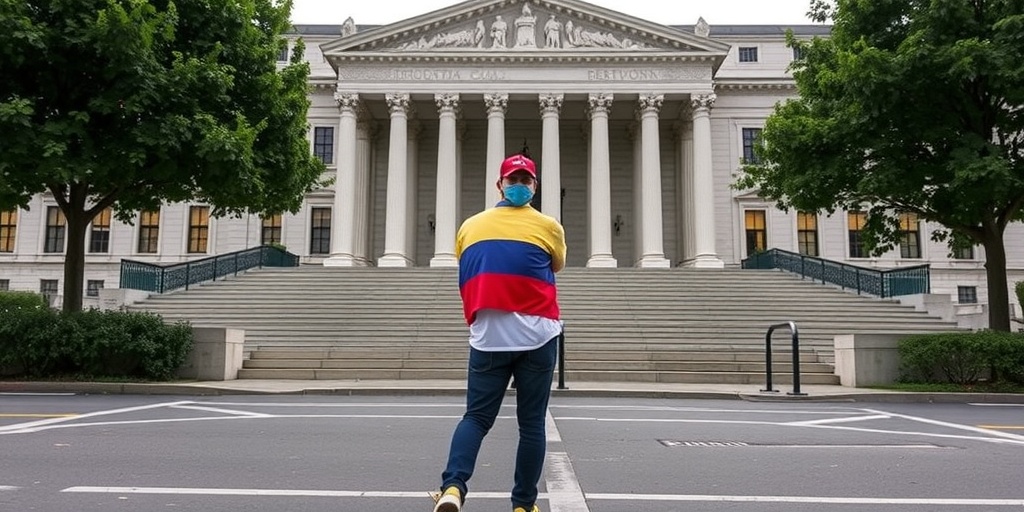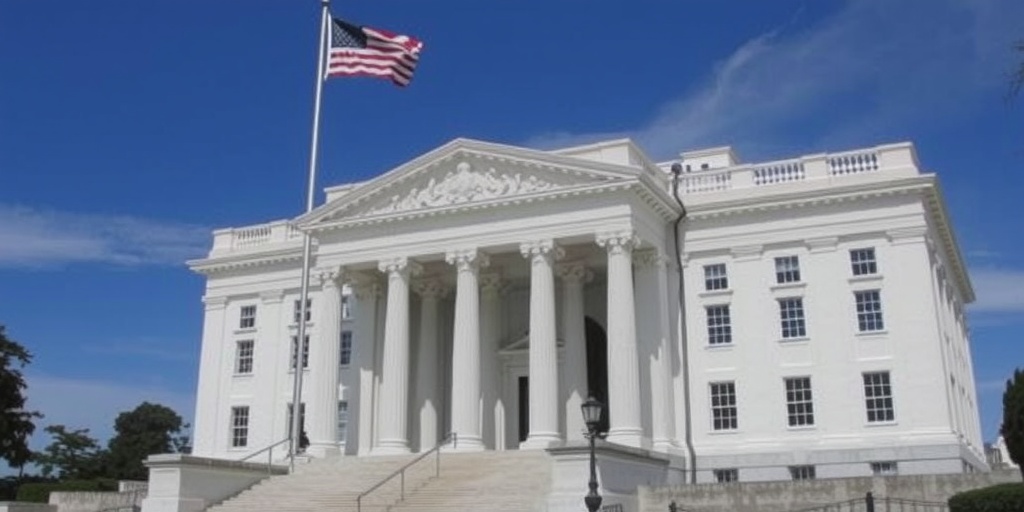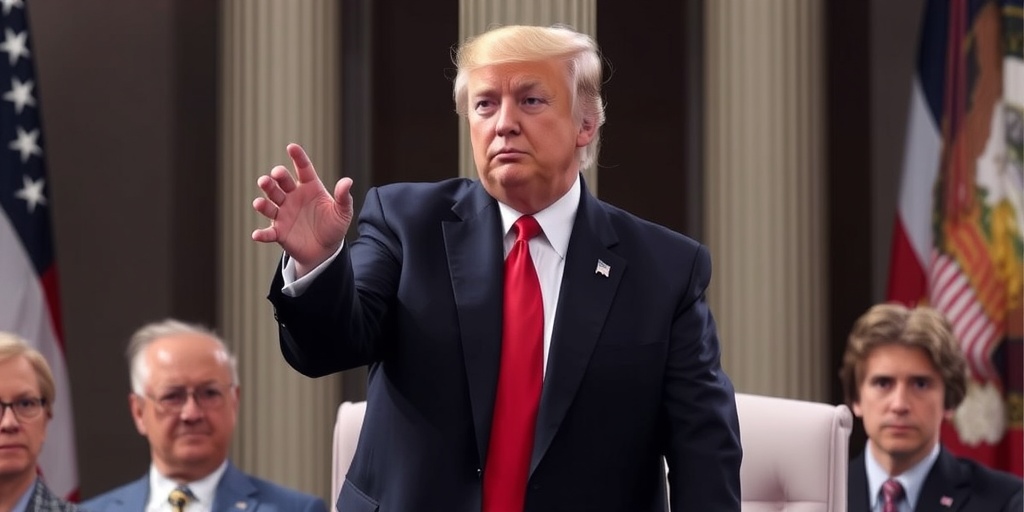Now Reading: Judge Halts Trump Administration’s Efforts to End Venezuelan Deportation Protections
-
01
Judge Halts Trump Administration’s Efforts to End Venezuelan Deportation Protections
Judge Halts Trump Administration’s Efforts to End Venezuelan Deportation Protections

Temporary Protected Status for Venezuelan Immigrants Maintained by Federal Judge
In a recent legal ruling in San Francisco, hundreds of thousands of Venezuelan immigrants will be allowed to remain in the United States without the looming threat of deportation. This decision comes after a federal judge intervened to delay actions by the Trump administration that aimed to roll back the Temporary Protected Status (TPS) program, which is vital for many individuals who have fled their home countries due to turmoil and instability.
Judge Edward M. Chen’s ruling comes as a significant relief for nearly 350,000 Venezuelan individuals currently protected under TPS. In his decision, Judge Chen highlighted that the actions taken in February by Homeland Security Secretary Kristi Noem, which included plans to terminate TPS protections in early April, would cause "irreparable harm" to families and communities. The judge emphasized that ending TPS would not only affect the lives of many individuals but would also cost U.S. businesses billions in economic activity and negatively impact public health and safety in various communities across the nation.
The TPS program has been a crucial lifeline for migrants from countries experiencing crises, allowing them to live and work legally in the United States without fear of deportation. Established by an act of Congress and signed into law by President George H.W. Bush, the program has opened its doors to individuals from nations afflicted by natural disasters, armed conflict, or other extraordinary circumstances. For Venezuelans, the ongoing political and economic crisis has made the TPS designation all the more necessary.
Under the Trump administration, efforts to terminate TPS designations for various immigrant groups, particularly Venezuelans and Haitians, have been undertaken. President Trump has publicly voiced intentions to deport millions of undocumented immigrants, and these recent actions appear to align with that promise. In February, the administration revoked an 18-month extension of TPS protection for Venezuelans—an extension that had been granted under the Biden administration. Additionally, they terminated TPS status for Venezuelans who initially registered in 2023, further exacerbating concerns among immigrant rights advocates.
Furthermore, the Trump administration also partially revoked another 18-month extension granted to Haitian immigrants, placing additional strain on an already vulnerable group. The implications of these revocations are far-reaching, as the actions could have impacted hundreds of thousands of people in early April and beyond.
In a recent hearing concerning the lawsuit filed against these actions, the plaintiffs—a collective of Venezuelan TPS holders and an immigrant advocacy organization—argued that Secretary Noem’s decisions were not only procedurally flawed but also driven by racial bias. They contended that the measures taken to reverse extensions were made without proper adherence to administrative procedures and without regard for the vast implications on affected families. In contrast, federal officials defended Secretary Noem’s actions, asserting that the measures were essential for the national interests of the United States.
In his Monday ruling, Judge Chen criticized the government for failing to demonstrate any significant harm that would result from the continued protection of Venezuelan TPS holders. He expressed concern over the arbitrary nature of the actions taken by Noem, indicating that the plaintiffs were likely to succeed in their claims that her decisions were unauthorized and driven by unconstitutional motives. This decision is seen as a victory for immigrant rights supporters, offering a temporary reprieve to many who would have otherwise faced uncertain futures.
The ongoing lawsuit will continue to play out in the courts, and this ruling serves as a crucial interim measure for the livelihoods of countless families and individuals. Affected Venezuelans are breathing a sigh of relief knowing that for now, they can remain in the U.S. without the threat of deportation hanging over their heads. As legal battles continue over the future of TPS and immigration policy in the United States, the outcome of this case will have lasting consequences not only for Venezuelan immigrants but for broader discussions about immigration and humanitarian protections in the country.
The unfolding legal saga surrounding Temporary Protected Status is emblematic of larger national conversations about immigration, justice, and the responsibilities of the United States towards individuals fleeing dire conditions in their home countries. The implications of the federal judge’s decision are profound and touch upon the lives of many who have sought refuge and stability in the United States amidst chaos and violence in their homelands.
Stay Informed With the Latest & Most Important News
Previous Post
Next Post
-
 01New technology breakthrough has everyone talking right now
01New technology breakthrough has everyone talking right now -
 02Unbelievable life hack everyone needs to try today
02Unbelievable life hack everyone needs to try today -
 03Fascinating discovery found buried deep beneath the ocean
03Fascinating discovery found buried deep beneath the ocean -
 04Man invents genius device that solves everyday problems
04Man invents genius device that solves everyday problems -
 05Shocking discovery that changes what we know forever
05Shocking discovery that changes what we know forever -
 06Internet goes wild over celebrity’s unexpected fashion choice
06Internet goes wild over celebrity’s unexpected fashion choice -
 07Rare animal sighting stuns scientists and wildlife lovers
07Rare animal sighting stuns scientists and wildlife lovers





















